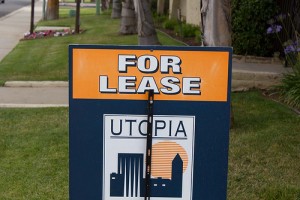 A business lease often looms as one of the biggest claims in a bankruptcy case and a big issue for a small business.
A business lease often looms as one of the biggest claims in a bankruptcy case and a big issue for a small business.
For bankruptcy lawyers, the lease raises, as most of these things do, both traps and opportunities
Beyond the common subject matter, today’s observations are probably otherwise without a theme.
Pivotal issue is identity of lessee
More often than you might expect, the lease for business premises for small business corporations or LLC stand in the name of the individual shareholders.
A bankruptcy case for the shareholders might otherwise leave their corporation unaffected. Bankruptcy for the individuals may even benefit the corporation by eliminating debt service on cards used for business purposes, an entirely different outcome follows if the business lease is in the name of the individual.
In a Chapter 7, the right to assume a lease and therefore preserve the right of the business to occupy the premises, vests in the trustee, not the debtor. So, the lease may be rejected and lost to the debtor’s business if they are the lessee.
Lease is assumable in Chapter 13.
Which brings us to my second observation: the right to assume a lease lodges in the debtor in a Chapter 13. In Chapter 7, only the trustee can make this call.
Whether the hybrid events trends are a proprietorship or a separate legal entity, when the debtors are the lessees, they have standing to bring a motion to assume the lease. Failure to timely file a motion to assume the lease may be a mistake from which there is no recovery.
When rejection is great
Often a business finds itself with a premises lease that is too expensive or otherwise no longer suited to a business that is changing or struggling. Bankruptcy for the lessee may allow the business to relocate to cheaper space or space better sized for its operations going forward. The breach of lease damages are captured and discharged in the bankruptcy case.
Takeaway? You’ve got to know who is liable on the lease and engage in some planning with your client if you want to make the most of a bankruptcy filing rather than making a mess of it.
Image courtesy of johnsnape







